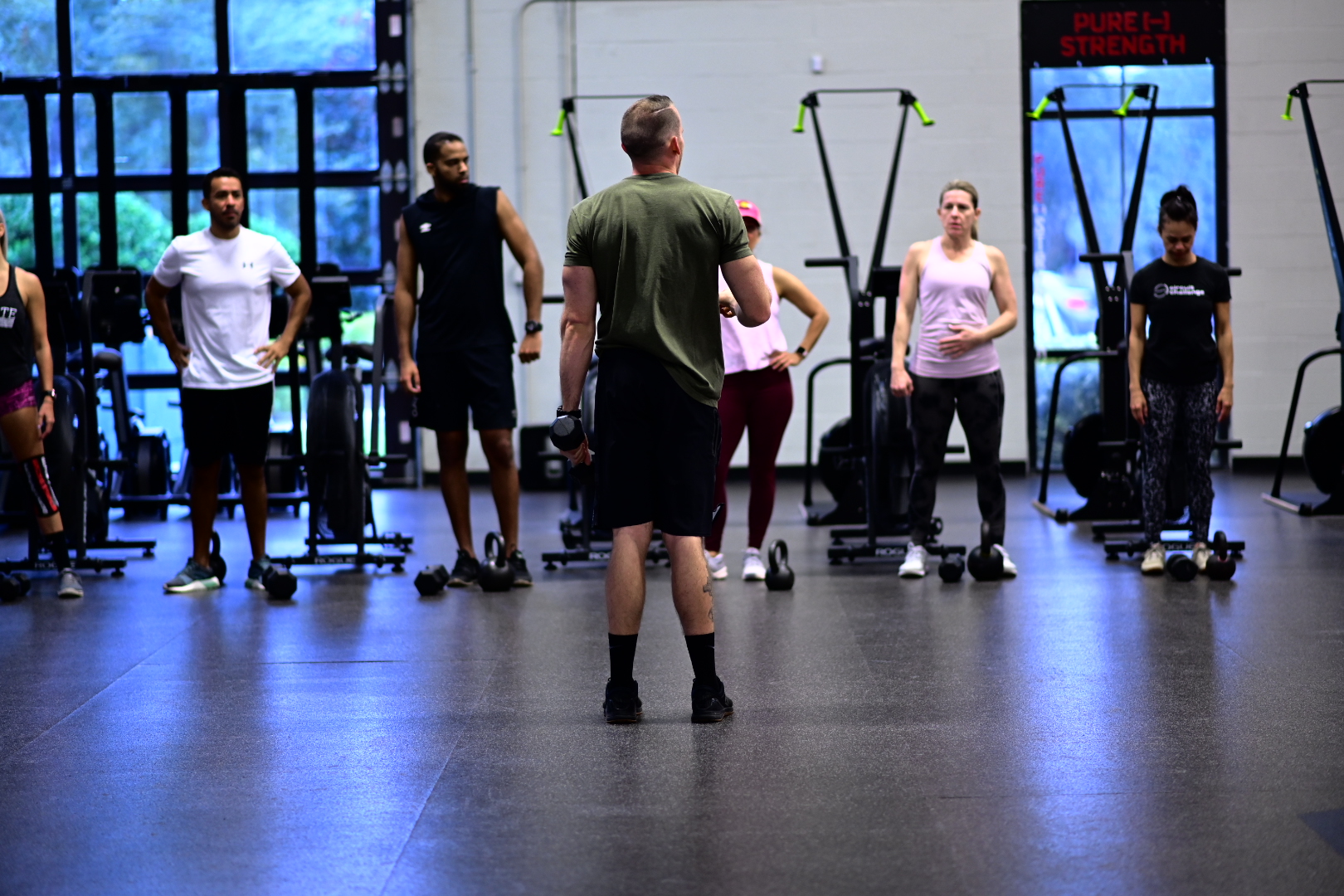
How to Know What Fitness Program is Right for You

What training regimen do you currently follow?
- CrossFit
- Orange Theory
- F45
- CycleBar
- SoulCycle
- Peloton
- Split Routines (i.e. Bodybuilding)
- P90X
- BeachBody On Demand
- Keto Kelly's Summer Shred (virtual eye roll)
The list is virtually endless; there are hundreds, if not thousands of options.
How do you know what program is right for you? How are you supposed to choose between CrossFit, Orange Theory, and the latest and greatest Six Week Summer Shred (don't even get me started on that bullshit)?
The amount of misinformation, fads, and gimmicks within the fitness industry is astounding, and quite frankly, paralyzing. It's no wonder that you don't know which program to choose, or why you're following your current training regimen - the shit is overwhelming and confusing.
I've spent the last eight years coaching full-time in a multitude of fitness disciplines from D1 Strength and Conditioning to CrossFit to Orange Theory, and through my experiences, I've come to the realization that the majority of you choose your training program based on the recommendations of friends, family, and/or training partners. That's it, it's that simple. You may Google a local gym or two, check out a few instagram feeds, or even subscribe to the free week of workouts from your favorite #fitspo, but in the end, you base your decision on the opinions of others.
Now, to be clear, there is nothing inherently wrong with choosing a training program that your relative, friend, or colleague cannot stop raving about, especially if you're not engaging in any type of physical activity or exercise (something is better than nothing). However, I'm here to tell you that there is a better way.
In order to determine which training program is right for you, you must first analyze your lifestyle and determine your goals.
The purpose of training is to cultivate the physical, mental, and emotional capabilities necessary to experience life. In other words, your training program must be conducive to your desired lifestyle.
Below are two examples to further clarify the point:
Example 1
Sally is a 32 year-old physician assistant in Whitefish, MT. She loves all things outdoors: hiking, camping, trail running, skiing, kayaking, paddle boarding, etc. Although Sally has an incredibly demanding work schedule, she takes advantage of every opportunity to escape into the backcountry. In regards to training, her goal is to increase stamina and endurance prior to taking on the John Muir Trail (JMT) next summer.
Now, what type of training program do you think would be right for Sally? It's likely a GPP style program like CrossFit, or possibly a strength and conditioning style split routine designed to develop muscular and cardiorespiratory endurance. Yoga, Olympic Weightlifting, and Bodybuilding wouldn't be of much benefit to Sally considering those programs are not designed to elicit the adaptations necessary continue living an active lifestyle and more easily hike the JMT.
Example 2
Jack is 40 year-old accountant in Ann Arbor, MI. Jack played baseball at the University of Michigan and has always enjoyed training. After graduating from Michigan, Jack continued to train and maintain an athletic physique. Eventually, Jack married his wife, Karen, started a family, and training fell to the wayside. Now, Jack is 30-lbs. overweight, his blood pressure is borderline hypertensive, he struggles to keep up with his kids, and he's unhappy with his appearance. Jack's goal is to lose weight, feel "athletic" again, and outlast his kids in the backyard.
Jack doesn't need to gain strength, perfect his Clean and Jerk, or spin his life away on a bike. Jack needs to adopt a physical active lifestyle, lose weight, and fill the competitive/athletic void in his life. He would likely thrive in a group-based program such as CrossFit, or possibly more structured, customized training like Individual Design.
Your training program must match your lifestyle and be conducive to your goals.
There are no perfect programs. Training programs are not one-size-fits-all. Training programs are designed to elicit VERY specific adaptations.
If you're considering switching programs, or if you're in the process of choosing your first training program, start here:
- In 3-5 sentences, describe your lifestyle (or desired lifestyle)
- List 2-3 components of fitness that you need in order to live that lifestyle (e.g. endurance, strength, flexibility, etc.)
- Create 1-2 goals that are associated with that lifestyle
- Analyze your lifestyle and review your goals
- Research training programs that are specific to your lifestyle and goals
- Call, Email, or DM the coach/trainer and ask questions
Now, if you complete the steps listed above and you're still lost, that is OKAY - I am here to help you. If you have questions regarding fitness programs, training facilities, equipment, nutrition, or even coaches/trainers, please do not hesitate to reach out; I am an open book and would LOVE to help you move forward on your health and fitness journey.
You can reach me at the following:
Email: dball@trainballistic.com
Instagram DM: ballistic.performance or derrickmball
Facebook Messenger: Ballistic Performance

Email hello @trainballistic.com
Instagram @ballistic.performance